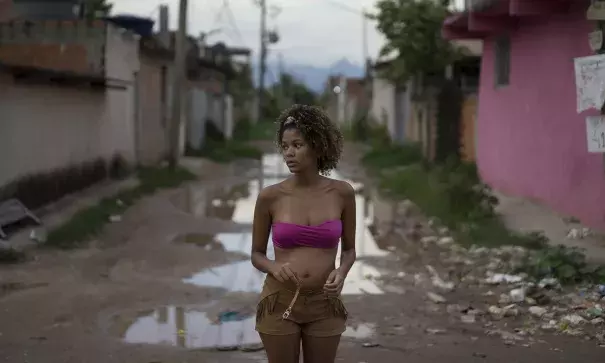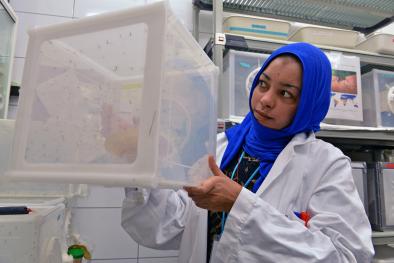Headline
Climate change may have helped spread Zika virus according to WHO scientists
Brazil

amires da Costa, 16, who is four months pregnant, stands in a street with standing flood water next to her home in the Parque Sao Bento shantytown of Rio de Janeiro, Brazil on 29 January 2016. Photo: Leo Correa, AP
It’s still not clear what role rising temperatures and altered rainfall patterns have had on the spread of Zika, which is mainly spread by mosquitos; the increased global movement of people is probably as great an influence as climate change for the spread of infectious diseases. But the World Health Organization, which declared a public health emergency over the birth defects linked to Zika, is clear that changes in climate mean a redrawn landscape for vector and water-borne diseases.
Related Content
Science Source
| The Lancet
El Niño and climate change—contributing factors in the dispersal of Zika virus in the Americas? - The Lancet
Shlomit Paz, Jan C Semenza
Science Source
| Proceedings of the National Academy of Sciences
Global risk model for vector-borne transmission of Zika virus reveals the role of El Niño 2015
Cyril Caminade, Joanne Turner, Soeren Metelmann et al
Headline

Apr 7, 2017 | Carbon Brief
Zika outbreak ‘fuelled by’ El Niño and climate change
Science Source
| MMWR. Morbidity and Mortality Weekly Report
Vital Signs: Update on Zika Virus–Associated Birth Defects and Evaluation of All U.S. Infants with Congenital Zika Virus Exposure — U.S. Zika Pregnancy Registry, 2016
Megan R. Reynolds, MPH; Abbey M. Jones, MPH; Emily E. Petersen et al


